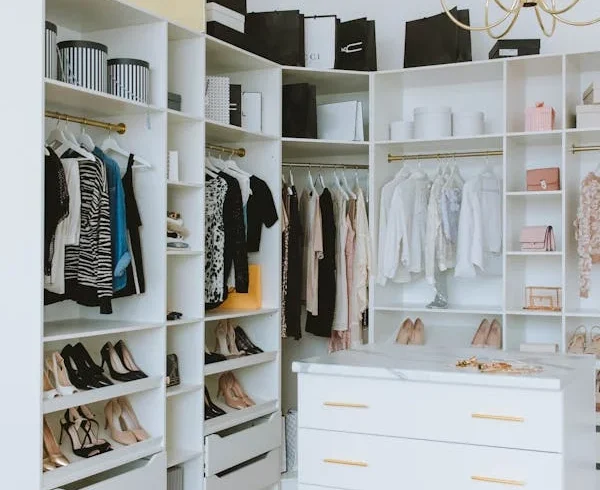
Convenient storage Surely each of us, at least once in our lives, had to give up our belongings for storage. Especially often resorted to this service are residents of the modern metropolis, where the conditions of existence and business change with incredible frequency. The end of the season, the rapid expansion of the assortment of stores, the impending repair—all these events are reasons to think about storage issues. How to save your belongings and what solutions can offer modern market services—let’s consider these issues in this article. The good news is that moving companies can help you prepare for moving.
Storing things is a task of a universal scale.
Some people need to think of where to put things during repairs; others are looking for a place to store seasonal tires, motorcycles, scooters, or even boats; and someone has temporarily moved into a small house where there is not enough space for all the furniture. In such situations, people often store things dear to their hearts, but at the moment, unnecessary stuff is stored on balconies, in common corridors of entrances, taken to villas, or in a garage, cluttering the free space of already small rooms. “At least it’s safe and well looked after,” some people think. But often, they just don’t know that there are other options. As a result, apartments, houses, and storage rooms turn out to be like a real junkyard, because no matter how you arrange things, if there are too many of them, then comfort is out of the question.
This is interesting!
The Convenient storage service of individual storage of personal belongings is widespread abroad and even has its own name: self-storage. In the UK, there are about 960 warehouses of this type; in France, there are 380; and in the U.S., their number is close to 50,000.
Business owners face the same problems, often on an even larger scale. Usually sales companies suffer—where to store goods if the quantity makes it unprofitable to rent an entire warehouse? You can use your own home; why not put a couple or three boxes in your apartment? It’s only temporary. And when the family begins to trip on sharp corners or sideways to squeeze into the kitchen, then you can screw a couple of racks to the wall, because so much more will fit. As a result, the apartments of entrepreneurs become warehouses at the same time. This is, of course, a cheap and relatively reliable way, but no one wants to live in a warehouse.
If the store occupies a separate room, then part of it can be used to store goods. Lucky for those who have enough space, the goods are stored in the back rooms. But what to do when there isn’t enough space for the products? Not to stack boxes and bags directly in the salesroom; it’s not aesthetically pleasing and also dangerous. In addition, legal entities are often faced with the “paper” problem—where to store archival documents if their quantity exceeds the allowable norms.
All of these questions often remain unresolved, and it is all the fault of banal ignorance of the existence of more convenient options for storing things. And sometimes there are misconceptions about them.
Putting things in storage? Is it convenient?
Of course, you can put up with the clutter in your own apartment, office, or cottage. It is possible to calm yourself with the fact that stepping over the numerous boxes or traveling through the labyrinth of cluttered storerooms is a tribute to modern society’s consumption culture or a necessary sacrifice for your own business. But such thoughts are perhaps inherent only in the most unassuming people, whose patience has no limits and… sense. After all, many people face a similar problem, which means that there is already a way out! You can just take all the things and store them in a special room—a warehouse.
The advantages of this approach should be noted separately. First, it is convenient; all things that you do not plan to use in the near future take their place, not disturbing your life. Goods for sale no longer take up all the free space in the office, making the working atmosphere relaxed and creative. Secondly, it’s secure. If you choose the right space, things are not threatened by theft, spoilage, or the impact of many unforeseen circumstances. Thirdly, it is inexpensive because you often pay only for the square meters that you need.
So, the general direction in the organization of storage things is chosen, and now all that is left is to decide on the details.
Pay attention!
Storage for personal belongings can be helpful for a person who has a hobby. So, a fisherman will find it convenient to send tackle, nets, spinning rods, a boat in his own storage, an artist’s paints, easels, ready-made paintings, and a collector’s part of his collection if it does not fit in the apartment or house anymore. At the same time, you free up living space, and your things will not be lost! At any time, you can use them or take them home again!
Choosing a storage unit
Several types of Convenient storage units differ in size and function and have their own advantages and disadvantages.
A traditional Convenient storage warehouse is most often an ordinary room, not suitable for living or organizing an office. Usually, it is a large facility of the “factory” type, located at some distance from the city. Such a variant is not convenient for everyone, but only for large companies that store large batches of goods. For legal entities, this is certainly not a bad option. True, you will have to work hard to find a really good warehouse for storing things. It is necessary to take into account transport accessibility, the possibility of access, the general condition of the room (humidity, fire safety, pest absence, security, heating, even flooring), and a lot of other factors that affect the safety of the goods and ease of use. It is necessary to spend time assessing all the advantages and disadvantages of the “live” room, and only after that can you make a decision about the lease.
You can rent a separate room in the building. Such options are sometimes offered by office business centers. The advantage of this solution is that a full-fledged office for employees can be arranged nearby; in addition, such warehouses often have heating, tracking systems, and even Internet access. The disadvantage is that it is not the most affordable price, so for those who are used to sparing their money, this option may seem like a real waste, especially when there are alternatives.
One of the most convenient storage options for storing things is a container-type warehouse. Let’s explain why. It’s a versatile option for companies of all sizes, as well as for people who simply need to provide their belongings with reliable storage. What is such a container system? These are large shipping containers originally designed to carry a variety of cargo. Such containers have extremely high rates of reliability, strength, and resistance to environmental changes. The distinctive feature of this option is that you can choose exactly the type of storage that you need. Accordingly, you pay only for the actual services. Want a small or huge container—no problem—heated and with electricity—please, and maybe you need a freezer container—this too will be found. Companies that rent them out are usually located within the city; all you need to do is choose the closest and most convenient option. In addition, it is not necessary to conclude a long contract; usually, the minimum storage period is one month. However, the probability that you will want to continue using the services of storing things in containers is quite high because, due to the flexibility of conditions and attractive prices, there is no need or desire to return to the traditional warehouses.
This is interesting!
Shipping containers have long been used not only for their direct purpose. In addition to the organization of warehouses, they are often used to make cabins for guard posts or even temporary housing (so-called “huts”).
Whatever type of storage you choose, it can be a real salvation if you turn to a truly reliable company.
Choosing a company
When choosing an organization that provides rental storage space, you should consider its reputation in the market, the duration of work, the number of services provided, and so on. But above all, you need to pay attention to its attitude toward the client. It is not only about the politeness of the consultant but also about the timing of each issue that arises (on transportation, loading, or operating lease), the ability to meet the customer, and the careful fulfillment of any, even the smallest, requirements. If the company’s employees really want to help, not just make money, then this approach indicates the proper organization of work and is a guarantee of quality services.
For many people, one of the key issues is the cost of storing things and goods. Let’s talk about prices.
Prices for the storage of things: debunking stereotypes
The Convenient storage cost of renting traditional warehouses, containers, and individual rooms in the building depends on the area, location, and livability of the object. On average, a square meter in Nizhny Novgorod will cost you 500–1000 rubles per month, or 18–20 rubles per pallet per day. Thus, a minimal space of 3 m2 (such can only be found among container warehouses) will cost about 2000–3000 rubles per month, and more spacious options such as 5–9 m2 are estimated at 400–8000 rubles per month. Storage on pallets provides warehouses with commodity storage, and for the preservation of their belongings, they may not be suitable. The company “Delicate Moving “provides storage with temperature and humidity levels for short-term and long-term storage of their belongings and furniture. The cost of the service is 16 rubles per m3 per day.






